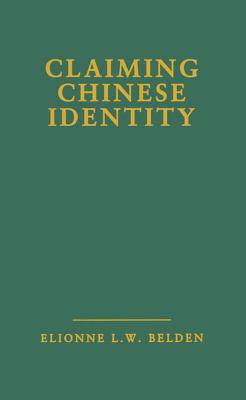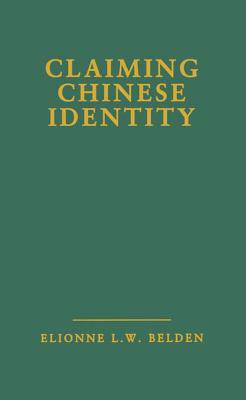
- Afhalen na 1 uur in een winkel met voorraad
- Gratis thuislevering in België vanaf € 30
- Ruim aanbod met 7 miljoen producten
- Afhalen na 1 uur in een winkel met voorraad
- Gratis thuislevering in België vanaf € 30
- Ruim aanbod met 7 miljoen producten
Zoeken
€ 351,45
+ 702 punten
Omschrijving
This study of first generation Chinese youth and their parents who have immigrated to Houston reveals the ways in which this group resists assimilation into the dominant Western milieu and instead accommodates itself as a paracommunity with the culture of its host city. Chinese parents counter Western influence on their children by enrolling them in Chinese language schools, having them participate in Chinese community events, and encouraging them to develop a network of Chinese friends. The study presents a detailed ethnography of a Chinese language school. It traces the negotiations between traditional Chinese beliefs-in particular, unquestioned submission to authority, kinship systems, and the denial of the singular self-and the developed sense of self in Western individualism. This study of identity reformation clearly indicates that there is space within the dialectics of immigration and the related cultural processes that enables the immigrant community to resist the image of all diasporic people as liminars and hybrids. The Chinese in this study do not sacrifice their past and their values in order to reformulate themselves for the present. Rather, they are determined to create a self-referential identity within a living and growing Chinese culture.
Specificaties
Betrokkenen
- Auteur(s):
- Uitgeverij:
Inhoud
- Aantal bladzijden:
- 194
- Taal:
- Engels
- Reeks:
Eigenschappen
- Productcode (EAN):
- 9780815329916
- Verschijningsdatum:
- 1/10/1997
- Uitvoering:
- Hardcover
- Formaat:
- Genaaid
- Afmetingen:
- 140 mm x 216 mm
- Gewicht:
- 371 g

Alleen bij Standaard Boekhandel
+ 702 punten op je klantenkaart van Standaard Boekhandel
Beoordelingen
We publiceren alleen reviews die voldoen aan de voorwaarden voor reviews. Bekijk onze voorwaarden voor reviews.







